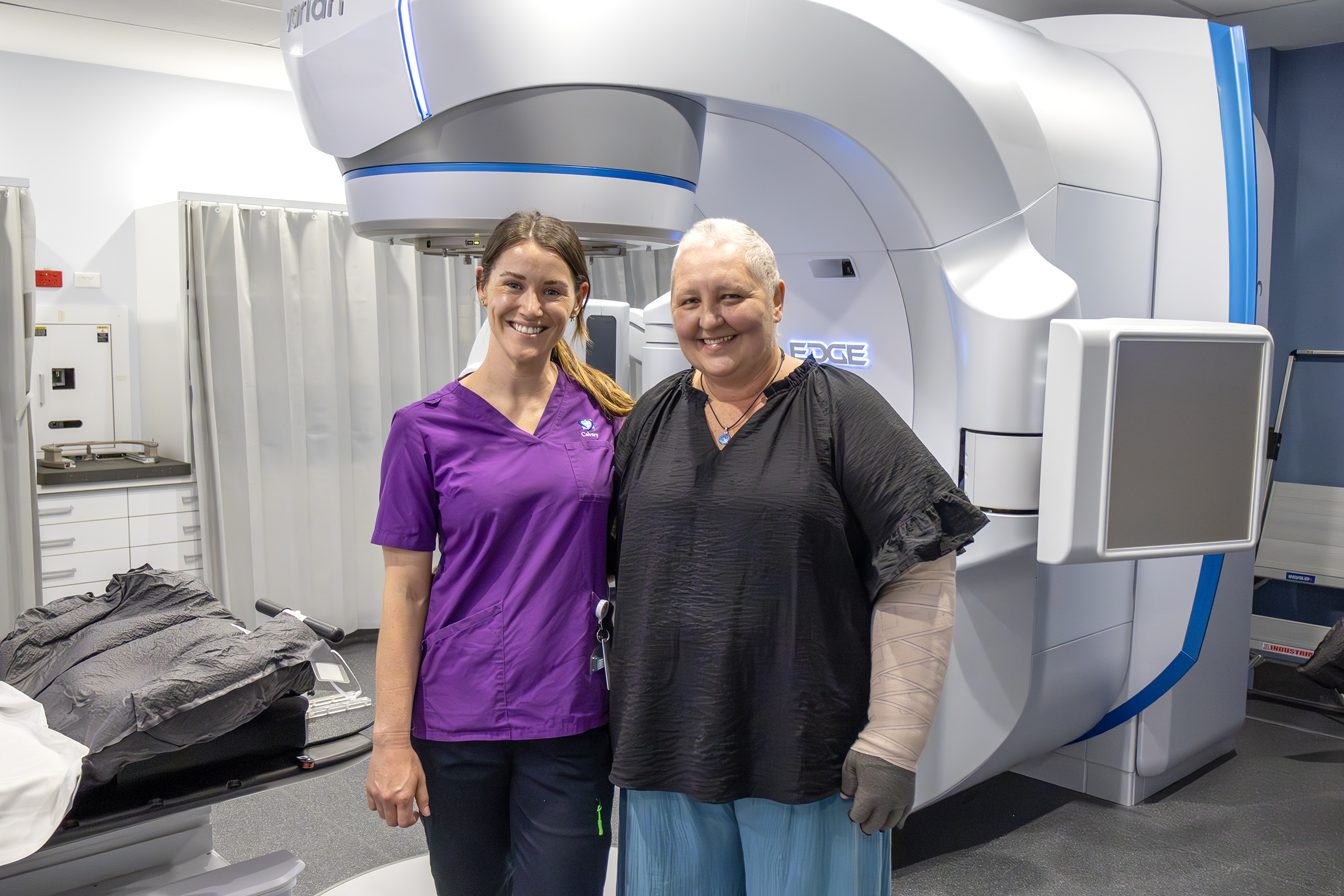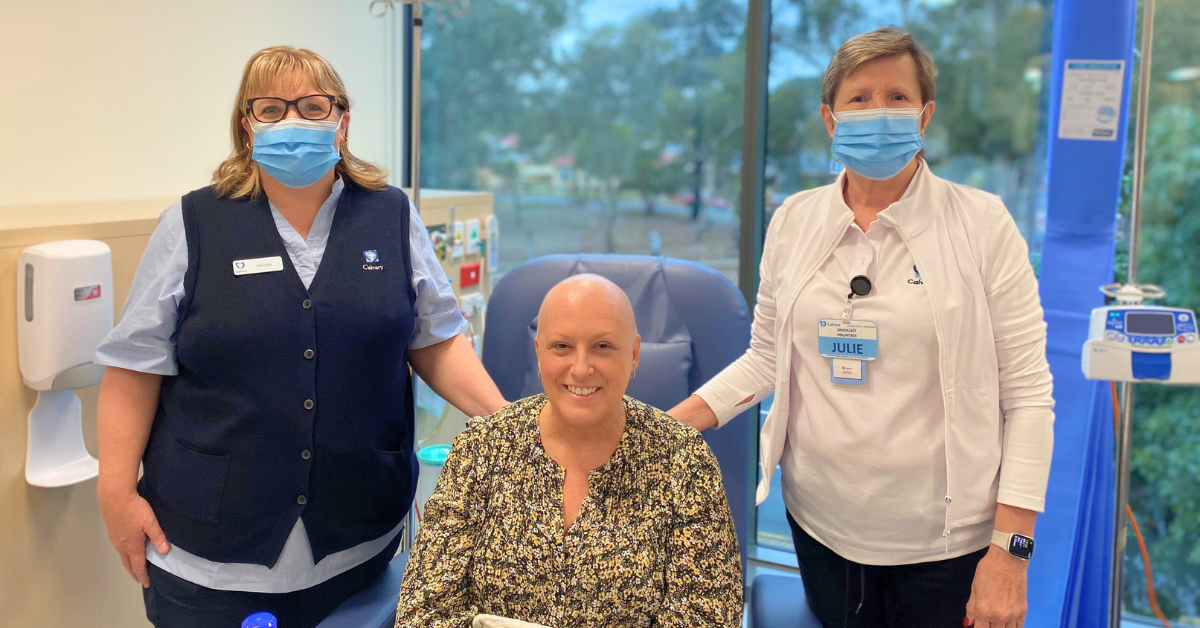Study sets the stage for new preventative measures

Current statistics show that 57% of women who develop uterine cancer are obese, yet it hasn’t been clear how or why fat cells drive this particular cancer more than other tumour types.
A multidisciplinary team of experts in nutrition, gynaecology, oncology and basic sciences was assembled by the Hunter Medical Research Institute to solve different parts of this puzzle. Among the team of experts is Calvary Mater Newcastle’s Medical Oncology Staff Specialist Dr Janine Lombard, pictured third from right, who was instrumental in clinical input, manuscript review and editing of the published study.
The study identified why being overweight makes a woman more susceptible to uterine cancer. A protein known as VEGF is released from fat cells and is able to ‘talk’ to cells lining the inside of the uterus. VEGF increases levels of growth factor protein which consequently can cause cells to become ‘out of control’ – when there are too many uncontrolled cells, cancer may develop.
The study is a first step to understanding the causes of uterine cancer, especially in overweight or obese women and sets the stage for preventative measures, looking at repurposing therapies and being able to warn women in advance.
Janine said, “The study has given us a much better understanding of why obesity is linked to uterine cancer and opens up possibilities for prevention. Prevention is a very important part of obesity related cancers. If we can help people modify their lifestyles we can hopefully prevent them developing a malignancy.”


